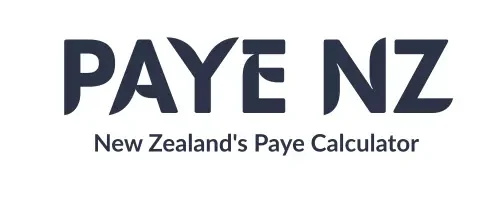Education Assistant Salary in New Zealand
If you are considering a career as an Education Assistant in New Zealand, understanding the salary, benefits, and job scope is crucial. This profession plays a vital role in supporting students and teachers, especially in inclusive and special needs education settings.

In this guide post, we will walk you through everything you need to know about Education Assistant Salary in New Zealand, including average pay, regional differences, growth opportunities, benefits, and how to get started.
Who is an Education Assistant in New Zealand?
Education Assistants (EAs), also known as teacher aides or classroom support workers, provide essential support in educational settings by:
- Assisting students with learning difficulties
- Supporting teachers with classroom management
- Helping children with disabilities or behavioural needs
- Providing one-on-one or small group instruction
- Assisting in physical care and mobility tasks
Where they work:
- Primary and secondary schools
- Special education units
- Early childhood centres
- Māori-medium schools (kura kaupapa)
Education Assistant Salary in New Zealand
Average Pay Range (2025)
| Location | Average Hourly Rate | Estimated Annual Salary |
|---|---|---|
| Auckland | $24.00 – $28.00 | $45,000 – $52,000 |
| Wellington | $23.00 – $27.50 | $43,000 – $50,000 |
| Christchurch | $22.50 – $26.00 | $42,000 – $48,000 |
| Regional NZ | $21.50 – $25.50 | $39,000 – $46,000 |
Salaries are based on experience, qualifications, and negotiated union rates under collective agreements.
Factors Influencing Education Assistant Salary in NZ
Several factors affect how much you’re paid as an Education Assistant:
- Experience Level
More years on the job usually mean higher step levels in pay scale agreements. - Qualifications
A Level 3 or 4 NZQA Certificate in Education Support can result in better pay. - Type of School
Public, private, and integrated schools may have different pay structures. - Union Membership
Members of NZEI Te Riu Roa benefit from collectively bargained salary agreements. - Hours Worked
Full-time (30–40 hours) vs part-time (under 30 hours) significantly impacts total earnings.
Pay Scale & Collective Agreement
The Ministry of Education’s pay equity settlement established a fair and transparent system for education support staff.
Teacher Aide Pay Equity Pay Scale (2025)
| Step | Hourly Rate | Qualification Required | Typical Experience |
|---|---|---|---|
| 1 | $23.38 | Entry-level | 0–1 years |
| 3 | $25.59 | Some experience | 2–3 years |
| 5 | $27.60 | Level 3 or 4 Certificate | 4–5 years |
| 6 | $29.40+ | Advanced role/responsibility | 5+ years |
The rates apply across most state schools and are updated annually based on negotiations.
Benefits Beyond the Salary
In addition to a stable income, education assistants enjoy a range of non-monetary benefits:
Paid Leave Entitlements:
- Annual leave aligned with school holidays
- Sick leave and domestic leave
- Bereavement leave
KiwiSaver Contributions:
- Employers contribute a minimum of 3% to retirement savings
Professional Development:
- Free or subsidised courses via Open Polytechnic and other providers
- On-the-job training and workshops
Work-Life Balance:
- Mostly term-time schedules
- Part-time flexibility common
Education Assistant vs Similar Roles
| Role | Average Hourly Rate | Annual Salary Estimate | Notes |
|---|---|---|---|
| Education Assistant | $24 – $28 | $45,000 – $52,000 | Based on support roles in classrooms |
| Early Childhood Educator | $25 – $32 | $48,000 – $60,000 | Requires ECE qualifications |
| Special Needs Teacher Aide | $25 – $30 | $47,000 – $55,000 | Works with high-needs students |
| Fully Qualified Teacher (Primary) | $35 – $48 | $60,000 – $90,000 | Requires teaching registration |
Education Assistants generally earn less than fully qualified teachers but have less training and responsibility requirements.
How to Become an Education Assistant in New Zealand
If you’re inspired to join this impactful career, follow this pathway:
Step-by-Step Guide
- Meet Basic Entry Requirements
- NCEA Level 2 (or equivalent)
- Clean police vetting check (mandatory for working with children)
- Gain a Qualification
- Recommended:
- NZ Certificate in Education Support and Care (Level 3 or 4)
- Certificate in Teacher Aiding
- Providers:
- Open Polytechnic
- NZ Tertiary College
- Ara Institute of Canterbury
- Recommended:
- Get Practical Experience
- Volunteer at local schools
- Apply for internships or placement programs
- Apply for Jobs
- MOE job boards, school vacancies, Seek, Trade Me Jobs
Career Growth & Long Term Opportunities
Education Assistant roles can be stepping stones to other careers in education.
Career Progression Pathways:
- Specialist Teacher Aide (focus on disabilities or behavioural needs)
- Learning Support Coordinator
- Fully Registered Teacher (via study + registration)
- Educational Psychologist or Social Worker (requires further tertiary education)
Job Outlook
According to Careers.govt.nz, teacher aide roles are in moderate to strong demand due to:
- Inclusive education policies
- Increased funding for support staff
- Rising student diversity in mainstream schools
Pros and Cons
| Pros | Cons |
|---|---|
| Meaningful and rewarding work | Relatively lower pay compared to registered teachers |
| Good work-life balance (school hours/terms) | Physically and emotionally demanding at times |
| Opportunities to help vulnerable or high-needs students | Limited full-time positions in some regions |
| Pathway into teaching or specialist education roles | Need for continuous learning and adaptability |
FAQs: Education Assistant
Final Verdict
Education Assistants in New Zealand form the backbone of inclusive and equitable education. While salaries may not be as high as fully qualified teachers, the work is stable, meaningful, and supported by collective agreements that ensure fair pay and working conditions.
For those passionate about helping students and making a difference, it’s a career well worth considering.
